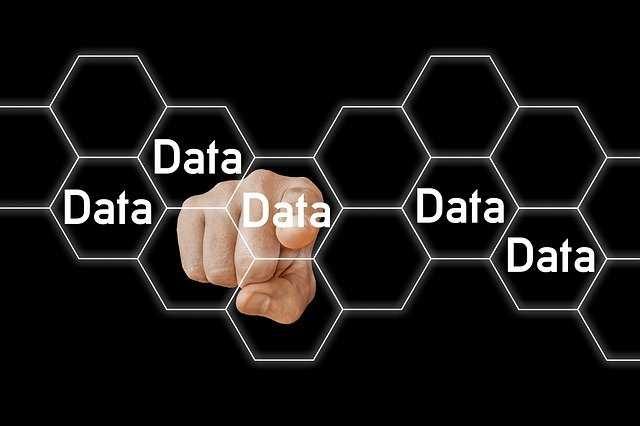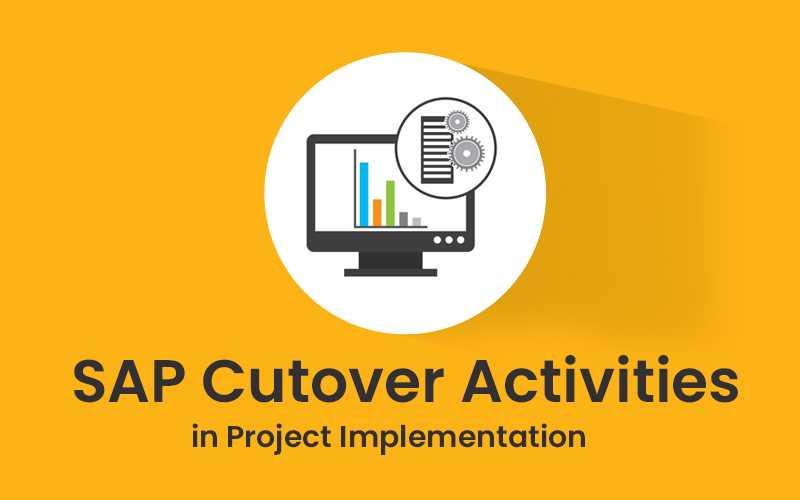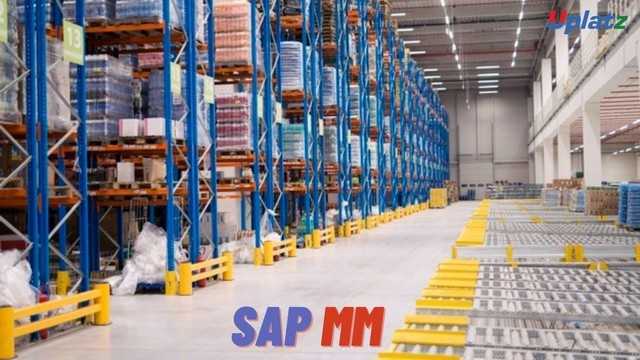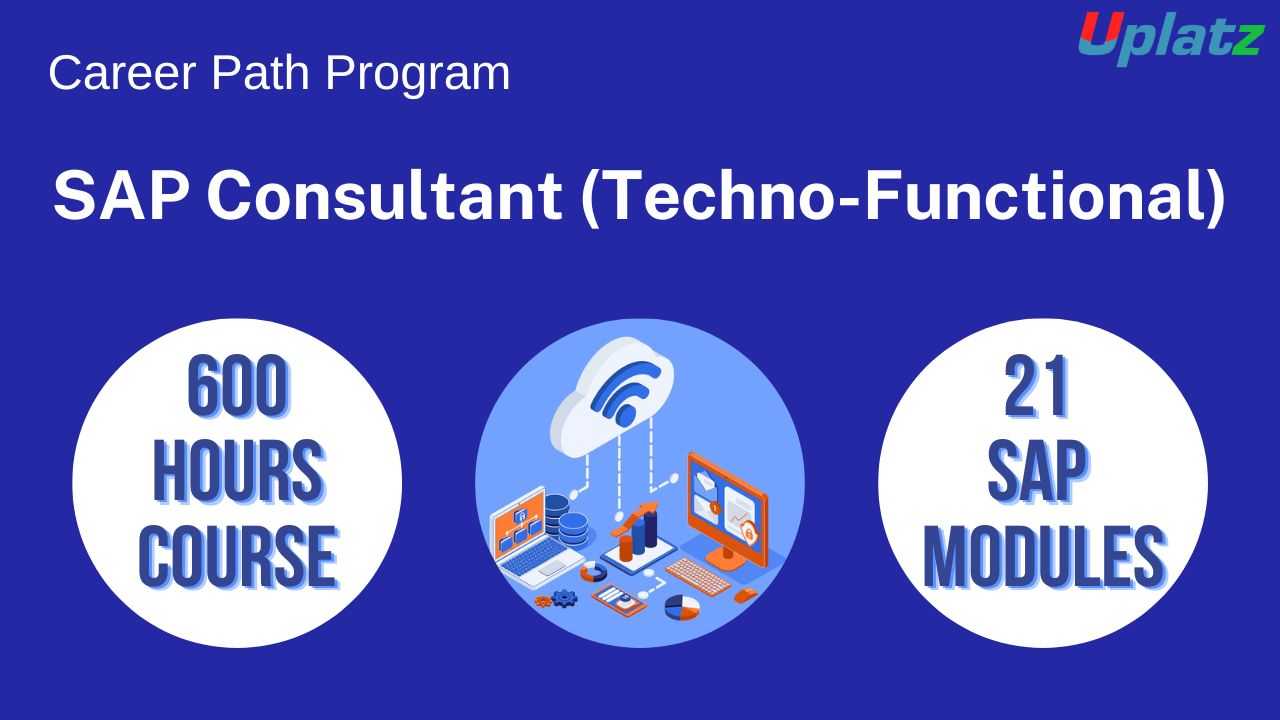SAP Data Services (BODS)
You will learn how to create various BODS objects from scratch with all hands-on exercise. View Course Curriculum
Price Match Guarantee
Full Lifetime Access
Access on any Device
Technical Support
Secure Checkout
Course Completion Certificate
View Course Curriculum
Price Match Guarantee
Full Lifetime Access
Access on any Device
Technical Support
Secure Checkout
Course Completion Certificate
 55% Started a new career
BUY THIS COURSE (
55% Started a new career
BUY THIS COURSE (GBP 12 GBP 29 )-
 69% Got a pay increase and promotion
69% Got a pay increase and promotion
Students also bought -
-

- SAP Cutover Management
- 4 Hours
- GBP 12
- 6 Learners
-

- SAP MM (Materials Management)
- 30 Hours
- GBP 29
- 2423 Learners
-

- Career Path - SAP Consultant (Techno-Functional)
- 600 Hours
- GBP 90
- 4489 Learners

SAP Data Services (previously called SAP BusinessObjects Data Services or BODS) is a software application for data integration and transformation. It allows users to develop and run workflows that retrieve data from predefined sources called data warehouses (applications, web services, flat files, databases, etc.), and then allow users to combine, modify and refine that data and then the result, returned to the same or different data warehouse.
SAP BODS is a data processing platform, it is used in extracting data from all types of dissimilar systems, transform it into meaningful information and load it into diverse types of systems. With full visibility into data quality, business users of an organization can observe that how their data measures up against information governance rules and standards. Understand the working and importance of SAP BODS to deliver better solutions during crisis.
What does SAP Data Services (BODS) do?
1. SAP BODS consolidates all information in the Enterprise Data Warehouse resulting in easy access to all data sources through local interfaces.
2. SAP BODS fixes the data quality issues thereby harmonizing non-SAP data and SAP standards, enrich and cleanse data, remove duplicates.
3. Standardize on single platform for all data extraction, validation and cleansing rules, so that SAP and non-SAP data can be combined, cleansed and validated before loading into BW.
In addition to standard functions for data conversion such as connection, reporting, filtering, aggregation and computation, SAP Data Services offers functions for text analysis, profiling and data checking, as well as data quality processes such as address matching, geocoding and standardization. It also supports modified data acquisition (CDC), an important way of providing input to data storage and flow processing systems. Lastly, SAP Data Services supports batch processing, which is a traditional approach to data transformation, and real-time services that allow applications to request data services and receive immediate responses based on predefined workflows.
With this detailed level SAP Data Services course offered by Uplatz, you will learn -
1) How to create various BODS objects
2) BODS from scratch with all hands-on exercise
3) How to migrate data to S4HANA
4) BODS functionality in detail
5) How to connect BODS to Data Source and various File formats
6) How to consumer and produce various XML files and Nested structures
This SAP BODS training offers a comprehensive overview of SAP Data Services and its features. You get to learn how to use this technology in a systematic manner. You will also go through the fundamentals of data integration and its concepts. And then, with concepts like recovery, error handling, troubleshooting, data transformation, sizing methods, performance tuning, and more, you will get to extend your skills to a great extent. This SAP Data Services is for students who wish to make their career as Data Consultant / Manager and Solution Architect.
Course/Topic - SAP Data Services (BODS) - all lectures
-
SAP BO Data Services consists of a UI development interface, metadata repository, data connectivity to source and target system and management console for scheduling of jobs. This introductory tutorial gives a brief overview of the features of SAP BODS and how to use it in a systematic manner.
-
In this beginner's SAP BODS tutorial, you will learn, History of SAP BODS, SAP Data Services Advantages and the disadvantages of SAP BODS.
-
SAP BODS is an ETL tool for extracting data from disparate systems, transform data into meaningful information, and load data in a data warehouse. It is designed to deliver enterprise-class solutions for data integration, data quality, data processing and data profiling.
-
Data Services Designer is a developer tool, which is used to create objects consisting of data mapping, transformation, and logic. It is GUI based and works as a designer for Data Services.
-
SAP BO Data Services (BODS) is an ETL tool used for data integration, data quality, data profiling and data processing. It allows you to integrate, transform trusted data-to-data warehouse system for analytical reporting.
-
This tutorial will help all those students who want to create their own local repository, configure a job server, start basic job development and execute the job to extract data from source systems and load the data to target systems after performing transformations, look-ups and validations.
-
This tutorial will help all those readers who want to create their own local repository, configure a job server, start basic job development and execute the job to extract data from source systems and load the data to target systems after performing transformations, look-ups and validations.
-
Learn SAP Business Objects Data Services from basic concepts to advanced concepts starting from introduction, architecture, data services, file formats, data loading, etc.
-
SAP BODS (Business Object Data Services) is an SAP DWH (Data Warehouse) product, where DWH is an enterprise level centralized reporting system. Data services is an end-to-end data integration, Data management, Test analysis software.
-
Before you start this SAP BODS tutorial, you should have a basic knowledge of SAP system, RDBMS, Data warehouse and Business Intelligence (BI).
-
SAP Bods training tutorials as per syllabus wise so beginners can easily learn SAP Business Object Data Services (Bods) step by step with real time project scenarios.
-
SAP BODS combines industry data quality into one platform. BODS provides a single environment for development, run-time, management, security, and data connectivity.
-
SAP BODS is an ETL tool that delivers a single enterprise-class solution for data integration, data quality, and data profiling that permits you to integrate, transform, improve, and provide trusted data that supports important business processes and enables sound decisions.
-
It provides a GUI that allows us to efficiently produce a job that mine data from various sources, convert that data to meet the business requirements of an organization, and load data into a single place.
-
SAP BO Data Services (BODS) is an ETL tool used for data integration, data quality, data profiling and data processing. It allows you to integrate, transform trusted data-to-data warehouse system for analytical reporting.
1. Gain the knowledge to participate in implementing, administering, and managing data integration projects
2. Acquire the basis for more advanced training in Data Quality Services
3. Gain the ability to troubleshoot batch jobs and set up error handlings
4. Attain potential to create batch jobs for the data integration
Key goals of the SAP Data Services (BODS) course include:
- Data Services
- Defining Data Services
- Source and Target Metadata
- Defining Datastores in Data Services
- Defining a Data Services Flat File Format
- Batch Job Creation
- Creating Batch Jobs
- Batch Job Troubleshooting
- Writing Comments with Descriptions and Annotations
- Validating and Tracing Jobs
- Debugging Data Flows
- Auditing Data Flows
- Functions, Scripts, and Variables
- Using Built-In Functions
- Using Variables, Parameters, and Scripts
- Platform Transforms
- Using Platform Transforms
- Using the Map Operation Transform
- Using the Validation Transform
- Using the Merge Transform
- Using the Case Transform
- Using the SQL Transform
- Error Handling
- Setting Up Error Handling
- Changes in Data
- Capturing Changes in Data
- Using Source-Based Change Data Capture (CDC)
- Using Target-Based Change Data Capture (CDC)
- Data Services Integrator Transforms
- Using Data Services Integrator Transforms
- Using the Pivot Transform
- Using the Data Transfer Transform
SAP Data Services (BODS) - Course Syllabus
1) BODS overview
- Over view of the Data services
- Data services benefits, associated products, interfaces
- Data services Architecture on single and distributed environment
2) BODS Designer concepts
- Creating the repository (Local, Central repository
- Exploring the menu options in the designer
- Creating the project, Job flow, Data flow, Work flows etc., defining different types of Data stores (Source and destination data stores)
- Use data store and system configurations
- Defining file formats for flat, Excel, XML files
3) Batch Jobs
- Creating Batch Jobs
- Work with objects
- Create a data flow
- Adding the Query transform to the data flow
- Use target tables
- Execute the job
4) Defining Data Integrator Transforms
- Date Generation Transform
- Pivot Transform
- Reverse Pivot Transform
- XML_Pipeline Transform
5) Defining Data Platform Transforms
- Query Transform
- Case Transform
- Merge Transform
- Validation Transform
- Row Generation Transform
- SQL Transform
6) Defining Data Quality Transform
- Address Cleanse
- Geocoder
7) Implementation of SCD
- SCD Type0
- Query Transform
- SCD Type1
- Table Comparison Transform
- Map_Operation Transform
- SCD Type2
- Table Comparison Transform
- History Preserving Transform
- Key Generation Transform
8) Using Functions, Scripts, and Variables
- Define built-in functions
- Use functions in expressions
- Use variables and parameters
- Create Custom functions
- Use Data Services scripting language
9) Data Assessment
- Using the data profiler
- Using the validation transform
10) Setting up Error Handling
- Set up recoverable work flows
11) Setting up Exception Handling
- Try/Catch Techniques
12) IF Conditional
13) While-Loop Implementation
14) Capturing Changes in Data
15) Data Assessment
- Update data over time
- Use source-based CDC
- Use target-based CDC
- SCD Type 2
16) Multi-User Environment(Local Repo Vs Central Repo)
17) SAP Integration
- Data extraction from ECC system to File, Table and SAP BI
- Data extraction from ECC Extractors
- Data Extraction from SAP BW
- ABAP Workflows
18) SAP HANA and SAP BODS Integration
- Introduction to SAP HANA
- Introduction to SAP HANA Studio
- Create Data Store for SAP HANA
- Perform the load into SAP HANA
- Store the data in Column Store
- Preview the data in SQL console of SAP HANA Studio
19) Information Steward
- Data Insight
- Metadata management
- Metapedia
The SAP Data Services (BODS) Certification ensures you know planning, production and measurement techniques needed to stand out from the competition.
SAP BO Data Services (BODS) is an ETL tool used for data integration, data quality, data profiling and data processing. It allows you to integrate, transform trusted data-to-data warehouse system for analytical reporting.
Business Objects was bought by SAP in 2008. In the BO portfolio, there was Data Services. It is now called SAP Data Services (official current name) or SAP BO Data Services (may have been the official name at the time).
Business Object Data Services (BODS) is a GUI tool which allows you to create and monitor jobs which take data from various types of sources and perform some complex transformation on the data as per the business requirement and then will load the data to a target which again can be of any type (i.e. SAP application.
A full length course of minimum duration of 2 months or above or combination of related courses of minimum 2 months duration enrolled with us in Live Online or Classroom Trainings format.
Uplatz online training guarantees the participants to successfully go through the SAP Data Services (BODS) Certification provided by Uplatz. Uplatz provides appropriate teaching and expertise training to equip the participants for implementing the learnt concepts in an organization.
Course Completion Certificate will be awarded by Uplatz upon successful completion of the SAP Data Services (BODS) online course.
The SAP Data Services (BODS) draws an average salary of $116,000 per year depending on their knowledge and hands-on experience.
SAP BO Data Services (BODS) is an ETL tool used for data integration, data quality, data profiling and data processing. It allows you to integrate, transform trusted data-to-data warehouse systems for analytical reporting.
You can create real time jobs to process real time messages in Data Services designer. Like a batch job, a real time job extracts the data, transforms and loads it. Each real time job can extract data from a single message. You can also extract data from other sources like tables or files.
You can execute your job in SAP-BODS Designer as referred to in my previous blog but sometimes your console may Break Down and you have an urgency to execute your Job then you will have another option executing it via console.
Note that salaries are generally higher at large companies rather than small ones. Your salary will also differ based on the market you work in.
SAP BODS CONSULTANT.
SAP Data Services Senior consultant, Data Migration Specialist
SAP BODS Senior Consultant
1. What is the use of SAP BusinessObjects Data Services?
SAP BusinessObjects Data Services provides a graphical interface that allows you to easily create jobs that extract data from heterogeneous sources, transform that data to meet the business requirements of your organization, and load the data into a single location.
2. Define Data Services components.
Data Services includes the following standard components:
- Designer
- Repository
- Job Server
- Engines
- Access Server
- Adapters
- Real-time Services
- Address Server
- Cleansing Packages, Dictionaries, and Directories
- Management Console
3. What are the steps included in Data integration process?
- Stage data in an operational datastore, data warehouse, or data mart
- Update staged data in batch or real-time modes
- Create a single environment for developing, testing, and deploying the entire data integration platform
- Manage a single metadata repository to capture the relationships between different extraction and access methods and provide integrated lineage and impact analysis.
4. Define the terms Job, Workflow, and Dataflow.
A job is the smallest unit of work that you can schedule independently for execution.
A work flow defines the decision-making process for executing data flows.
Data flows extract, transform, and load data. Everything having to do with data, including reading sources, transforming data, and loading targets, occurs inside a data flow.
5. How many types of datastores are present in Data services?
There are three, they are:
- Database Datastores: provide a simple way to import metadata directly froman RDBMS.
- Application Datastores: let users easily import metadata frommost Enterprise Resource Planning (ERP) systems.
- Adapter Datastores: can provide access to an application’s data and metadata or just metadata.
6. What are Memory Datastores?
Data Services also allows you to create a database datastore using Memory as the Database type. Memory Datastores are designed to enhance processing performance of data flows executing in real-time jobs.
7. What are file formats?
A file format is a set of properties describing the structure of a flat file (ASCII). File formats describe the metadata structure. File format objects can describe files in:
- Delimited format — Characters such as commas or tabs separate each field
- Fixed width format — The column width is specified by the user
- SAP ERP and R/3 format
8. What is repository? List the types of repositories.
Repository is a set of tables that holds user-created and predefined system objects, source and target metadata, and transformation rules. There are 3 types of repositories.
- A local repository
- A central repository
- A profiler repository
9. What is the difference between a Repository and a Datastore?
A Repository is a set of tables that hold system objects, source and target metadata, and transformation rules. A Datastore is an actual connection to a database that holds data.
10. What is the difference between a Parameter and a Variable?
A Parameter is an expression that passes a piece of information to a work flow, data flow or custom function when it is called in a job. A Variable is a symbolic placeholder for values.









